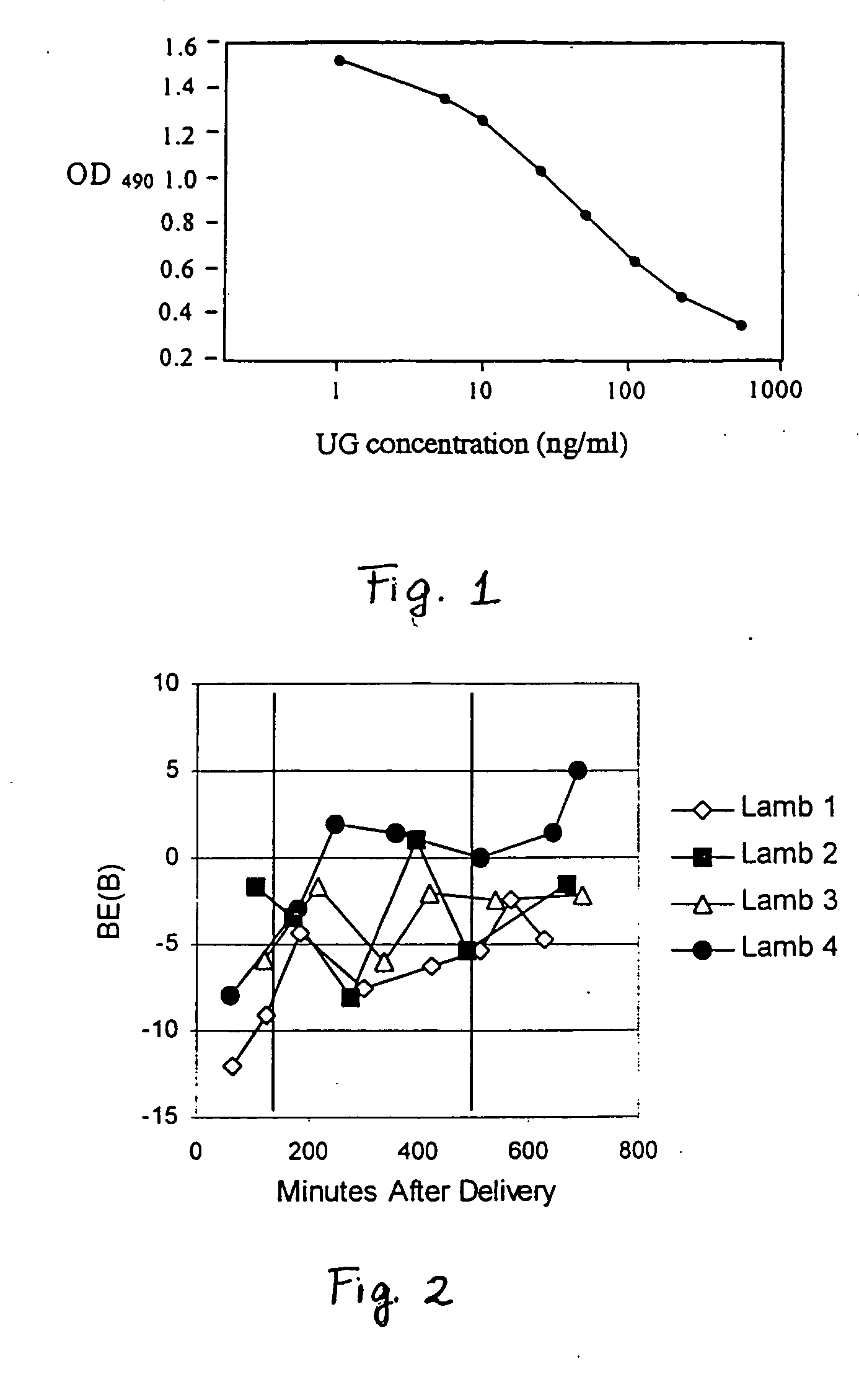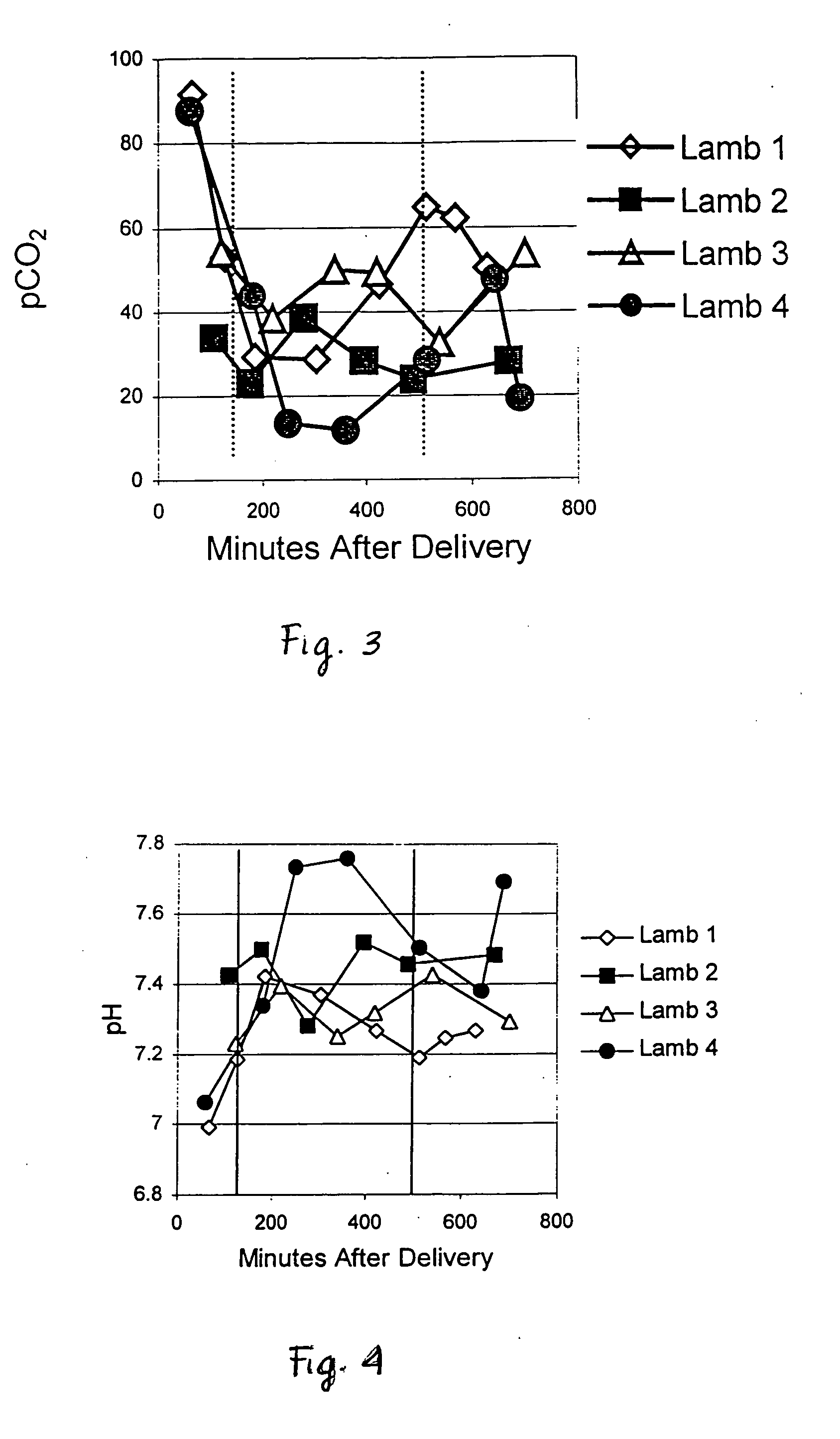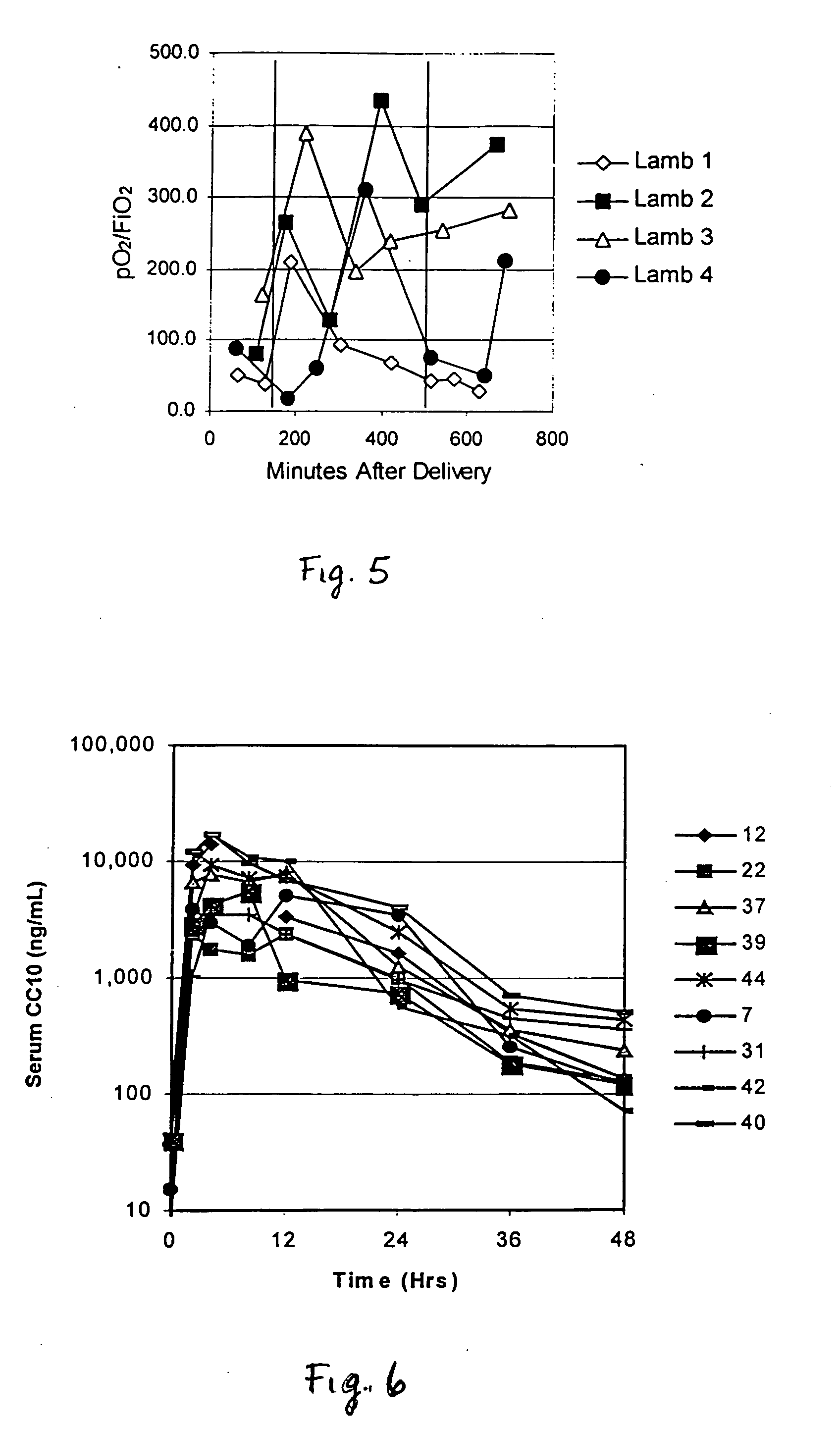Methods and compositions for the treatment of fibrotic conditions & impaired lung function & to enhance lymphocyte production
a technology for fibrotic conditions and compositions, applied in the direction of drug compositions, peptides, cardiovascular disorders, etc., can solve the problems of pulmonary fibrosis, death, and inability to predict whether a protein will possess in vivo therapeutic functions in humans, and achieve the effects of improving and/or normalizing lung function, pulmonary compliance, and/or blood ph
- Summary
- Abstract
- Description
- Claims
- Application Information
AI Technical Summary
Benefits of technology
Problems solved by technology
Method used
Image
Examples
example 1
[0088] Recombinant human uteroglobin was administered to several mammalian species via several routes of administration to determine the safety and biological activity of the protein. The protein was given to rats in order to assess pharmacokinetics, bioavailability, and tissue distribution when administered intravenously, intranasally, and by stomach gavage. It was also given intratracheally to very young animals of three large animal species, including premature baboons, premature lambs and newborn piglets. The biological activity of recombinant human uteroglobin and its effect on various aspects of lung function was evaluated in these animal studies. The concentrations of recombinant human uteroglobin in all species were determined using an ELISA assay that is specific for human uteroglobin.
[0089] a. Purification of Recombinant Human Uteroglobin
[0090] Recombinant human uteroglobin was cloned and expressed by a method similar to that described in copending U.S. application Ser. No...
example 2
[0145] The demonstration of the binding interaction between human fibronectin and recombinant human uteroglobin prompted the development of a non-radioactive assay for this interaction that could be used as a measure of recombinant human uteroglobin biological activity. Therefore, two ELISA-based assay formats for the uteroglobin-fibronectin binding interaction were tested, as shown in FIGS. 17A-17B. Briefly, in the first of these assay methods recombinant human uteroglobin was used to coat the wells of a microtiter dish, which followed by fibronectin binding and detection of the bound fibronectin with an anti-fibronectin monoclonal antibody (Life Technologies, Inc.; product #12062-014). In the second assay, purified human fibronectin was used to coat the wells of a microtiter dish, followed by recombinant human uteroglobin binding and detection of the bound recombinant human uteroglobin with an anti-uteroglobin antibody (Dako, USA). Both formats gave comparable results with a 2-3 f...
example 3
[0162] The discovery that recombinant human uteroglobin binds to human fibronectin in solution has profound implications (U.S. Ser. No. 08 / 857,364). In addition, the ability of recombinant human uteroglobin to prevent fibronectin aggregation in vitro, fibronectin-mediated fibrillogenesis in cell culture, and renal fibronectin deposition in vivo, demonstrates the important physiological role of endogenous uteroglobin in all mammals. Fibronectin is one of the most well characterized mediators of cell adhesion, and is involved in several physiologic processes, including platelet aggregation (thrombosis), wound healing, fibrosis, inflammatory cell and fibroblast adhesion, tumor metastases, and extracellular basement membrane formation. However, these processes involve the insoluble form of fibronectin, not the soluble form. It would be desirable to prevent the conversion of fibronectin from its soluble form to its insoluble form, which could be exploited to prevent the initiation of the...
PUM
| Property | Measurement | Unit |
|---|---|---|
| molecular weight | aaaaa | aaaaa |
| molecular weight | aaaaa | aaaaa |
| temperature | aaaaa | aaaaa |
Abstract
Description
Claims
Application Information
 Login to View More
Login to View More - R&D
- Intellectual Property
- Life Sciences
- Materials
- Tech Scout
- Unparalleled Data Quality
- Higher Quality Content
- 60% Fewer Hallucinations
Browse by: Latest US Patents, China's latest patents, Technical Efficacy Thesaurus, Application Domain, Technology Topic, Popular Technical Reports.
© 2025 PatSnap. All rights reserved.Legal|Privacy policy|Modern Slavery Act Transparency Statement|Sitemap|About US| Contact US: help@patsnap.com



